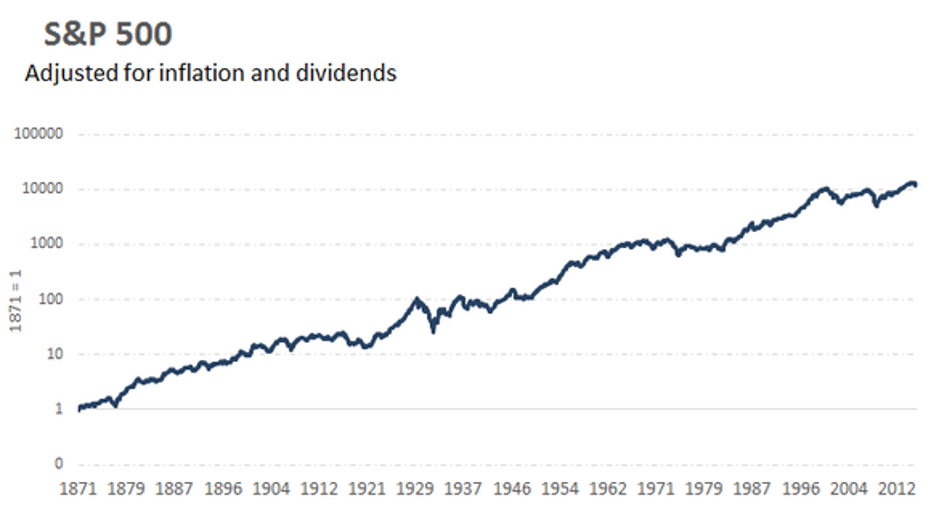Motley Fool on Brexit and Your Portfolio: Do Nothing

Market commentators are lining up to calmly forecast the likely outcome of the U.K.'s decision to leave the European Union. These are the same commentators who calmly forecast that the U.K. would not leave the European Union, so take them for what they're worth.
Winston Churchill fittingly said, "Democracy is the worst form of government, except for all the others." Thursday's vote may have been precisely what he spoke of. While the people have spoken, they have voted for pushing the pound to the lowest level since 1985, the nation's bank stocks down nearly 30%, and -- at the risk of being one of those forecasters -- almost certainly a weaker economy. Based on currency fluctuations, the U.K. gave up its title as the world's fifth-largest economy last night, ceding to France. And we're only a few hours after polls closed.
What's this mean for you as an investor?
An investor friend of mine, Tren Griffin, jokes whenever market-moving news occurs that he "cannot wait to get to my computer in the morning and proceed to do absolutely nothing."
The most important thing you can do right now is heed his advice. We're not selling. We're not making changes to our portfolios. We're genuinely shaking our heads in surprise, but we're not worried. If anything, huge declines become opportunities which is good timing, as the next round of Tom's EP buys are due next Friday.
My litmus test for whether the world economy will create value over time is asking the question, "Did more people wake up this morning seeking to solve problems and make life better for others than do the opposite?" And the answer is still firmly "yes."
Whether it was after 9/11, or the 2008 financial crisis, or Greece's default, financial markets habitually have sharp, knee-jerk reactions to big news stories with lots of uncertainty. The attitude among investors becomes "sell now, ask questions later," as so many hedge funds and professional traders cannot afford the risk of not knowing what might happen to their investments over the next, say, 30 days.
We're not in that camp.
It's possible a big stock sell-off is justified. But it's probable that today's plunge is more indicative of people selling because they don't know what's going to happen, not because they know something you don't. That's why we stay the course.
Let me remind you of the above chart. It's the U.S. stock market over the last 140 years, adjusted for inflation:
Do you know what happened during this period?
- 1.3 million Americans died while fighting nine major wars.
- Four U.S. presidents were assassinated.
- 675,000 Americans died in a single year from a flu pandemic.
- 30 separate natural disasters killed at least 400 Americans each
- 33 recessions lasted a cumulative 48 years.
- The stock market fell more than 10% from a recent high at least 97 times.
- Stocks lost a third of their value at least 12 times.
- Annual inflation exceeded 7% in 20 separate years.
- The words "economic pessimism" appeared in newspapers at least 29,000 times, according to Google.
And the market still increased 100,000-fold.
So, I suspect we're be OK.
Patience will be constantly tested but ultimately rewarded -- as it always has been.
The article Brexit: What We Are (And Aren't) Doing originally appeared on Fool.com.
Try any of our Foolish newsletter services free for 30 days. We Fools may not all hold the same opinions, but we all believe that considering a diverse range of insights makes us better investors. The Motley Fool has a disclosure policy.
Copyright 1995 - 2016 The Motley Fool, LLC. All rights reserved. The Motley Fool has a disclosure policy.



















